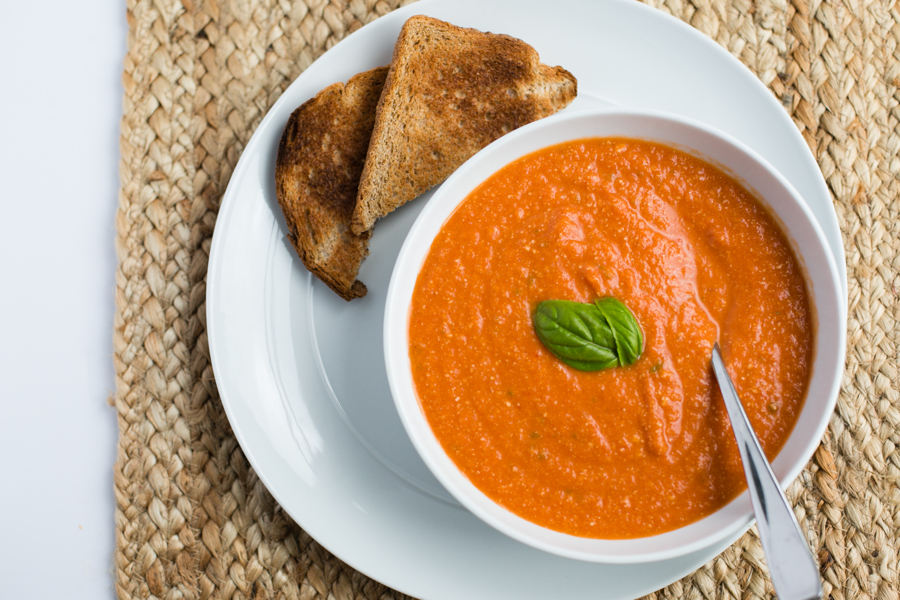
by Stephanie Margolis, R.D.
Plants have never been so in style! You’ve seen the terms plant-forward, plant-based, vegan, vegetarian, flexitarian… all telling you to eat more plants. But why? Plants have always been there, but their popularity has ebbed and flowed. Scroll through the Netflix documentary list and you’ll see, currently, we are in a peak and there are good reasons why. As we look at the rising cost of healthcare and increasing disease rates, many individuals and institutions are looking for ways to stop the unnerving trends. This leads to focusing on the foods we consume. While some choose to eat more plants because they are avoiding meat, others will increase their produce intake because of the benefits of plants. Here we are focusing on those benefits.
What is Plant-Based?
With all the terminology out there, it’s important to know that while all plant-based diets want you to eat more greens (and yellows, purples, red, orange, and so on) there is a difference in the diets*.
Vegan: This is often seen as the most restrictive, focusing entirely on plants and allowing no meat, fish, dairy, or eggs in any capacity.
Vegetarian: The most “mainstream” meat-free way of eating. This diet is plant based but, depending on the specifics of the person, does allow for dairy and egg products.
Flexatarian: Introduced recently as a way for those who want to eat most vegetarian but also want to sometimes indulge in meat or fish.
Plant-forward: This way of eating emphasizes plant based foods, meat may be included but is not the main dish. **In this article I use plant-forward and plant-based interchangeably. Our recipe box is full of plant-based and plant-froward recipes.
*It should be noted that the term “diet” here is to refer to the way of eating as a lifestyle and not a diet following in the short-term.
Why Plants?
Scientists have been very interested in plants because early research indicated that reducing the amount of meat you consume is directly correlated with longevity and decreasing your risk for heart disease, stroke, obesity, high blood pressure, high cholesterol, diabetes, and many cancers. While there’s some question, when you look at the entire body of research, regarding the optimal plant-based diet – some studies excluded soybeans and nuts, some allowed egg whites and skim milk – what we do know is that more plants = better health.
In one Harvard study following 110,000 people for 14 years, those who consistently enjoyed eight servings of fruits of vegetables were 30% less likely to have a heart attack or stroke. We also know that vegans and vegetarians have lower BMIs with an average weight of 6-15 pounds less than meat eaters. This indicates that a plant-focused diet can aid in weight loss. There are other benefits to eating more fruits and vegetables, including improving the largest organ in your body, your skin. For example, lycopene, the powerful nutrient found in tomatoes, helps protect skin from sun damage. At the same time vitamin C, found in high amounts in sweet potatoes, helps stimulate collagen production thus smoothing out wrinkles in the skin. High5 to that!
We know that food can have a powerful impact on the body, and several case studies have shown greater control of blood sugar (A1C specifically), blood pressure, and lipid profiles in patients who ate plant-based versus those who took traditional medications.
But Won’t I Miss Out on Protein?
Ah! The most common concern! In a review of 87 studies not one study found individuals who ate plant based (vegan, vegetarian, or otherwise) to be protein deficient. At a molecular level, protein is a bunch of amino acids that helps the body function properly. In a balanced plant-based diet you will find enough amino acids available to prevent any negative health effects.
There are also worries about the lack of other important nutrients such as iron, Vitamin B12, and fatty acids. Good news: You’ll only need one supplement! Iron and fatty acids (omega-6 and omega-3) are plentiful in the plant-forward diet if you are including beans, leafy greens, and healthy oils such as ground flaxseed, walnuts, and canola oil The only area of concerns comes from vitamin B12 which is needed to help in the formation of blood and in cell division. It is often lacking in diets without meat so a quality supplement is recommended.
*Note: The information listed below is not specific to breastfeeding or pregnant moms. For more nutrition guidance visit our pregnancy and breastfeeding nutrition articles.
Overall, individuals who eat plant-based diets consume more magnesium , potassium, iron, thiamin, riboflavin, folate, and vitamins. Even if you aren’t interested in cutting out meat completely, consider filling ½ of your plate with colorful fruits and vegetables – for your health today AND tomorrow! Start with our Plant Based Beginner’s Guide.